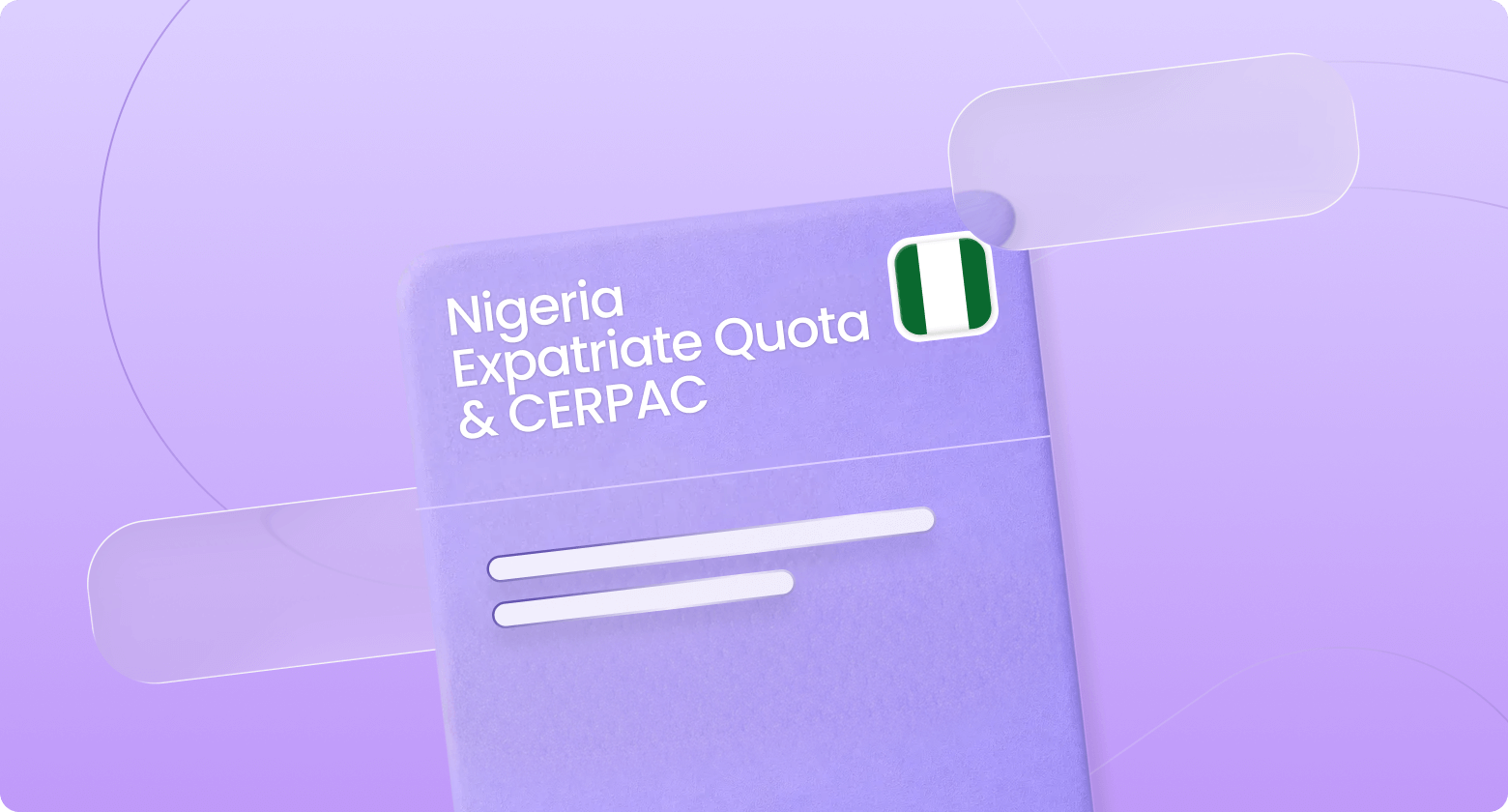Copied to Clipboard
Ready to get Started?


Key Takeaways
Growing your team across borders is a major milestone, but comes with added complexity – such as managing benefits, payroll and compliance issues you don’t have time for. Outsourcing your HR costs can be a simple way to offload the heavy-lifting so you can focus on what matters. In fact, you can gain an average ROI of 191% from HR outsourcing, with large companies saving a whopping $3000 a month on just payroll alone.
In this guide, we’ll break down the cost of outsourced HR services in 2026, explore common pricing models, and show you how to calculate the potential return on investment (ROI).
Understanding HR Outsourcing Costs
The global shift towards remote work has opened the door to wider talent pools – with technological advances making it much easier to operate a team across borders. That said, there’s no doubt that a distributed workforce adds new layers of complexity to HR management.
What was once a manageable task has now become a steadily growing logistical headache, especially for SMEs trying to scale operations without drowning in compliance issues.
The brass tacks of HR outsourcing come down to task delegation like payroll, benefits administration, recruitment, and compliance to third-party providers. The costs can vary widely, and so understanding the pricing models and factors that influence those costs is a crucial part of the budgeting process.
HR Pricing Models
Whether you’re looking for predictability or flexibility, understanding the different pricing models will help you select the best fit for your needs and ensure you get the best bang for your buck out of your HR outsourcing.
Per Employee Per Month (PEPM)
This model charges a flat fee for each employee every month. For example, a company with 50 employees may pay $100 per employee, totaling $5,000 monthly. It's a simple, scalable pricing model that gives you a predictable cost.
Percentage of Payroll
Some providers charge a percentage of your total payroll cost. Rates usually range from 2% to 12%. So, if your monthly payroll is $100,000, you might pay anywhere from $2,000 to $12,000 for HR services required.
Fixed Fees or Retainers
Here, you pay a set monthly fee, regardless of the number of employees being onboarded. For example, a company might pay $5,000 per month for comprehensive HR services. This is ideal if you want a predictable, all-in-one solution.
Flat Fee by Service (Pay-As-You-Go)
With this model, you pay for specific HR services as needed. For instance, you might pay $500 for a one-time compliance audit or $2,000 for an employee training session.
Common Outsourced HR Services and What You Can Expect to Pay
So how do you decide which HR services to outsource and which can be handled in-house? Answering this question means understanding what each service offers and what it will cost your organization.
Payroll Processing
Payroll processing is the step-by-step of handling employee pay. This includes figuring out how much each person should be paid, taking out taxes and other deductions, and making sure employees get paid on time.
When outsourcing payroll processing, typical costs could include:
- Flat Fee: $20 - $180 per employee per month. This means you pay a set amount per employee every month.
- Employee Fees: $2.07 - $20 per employee per month. This fee is variable, meaning it changes based on what the service being provided is.
- Larger Enterprises: Costs may exceed $500 per month
The cost of payroll can vary according to the complexity of an organization’s needs. Features like tax filing or benefits administration, and global compliance needs for example will alter the final price.
You can also outsource payroll management to a company like Playroll. This means you can unify multi-vendor data and generate global reports, manage end-to-end global payroll processes across entities, and improve compliance and standardized governance across the board.
Employee Benefit Administration
Outsourcing employee benefits means a third-party service manages everything from onboarding to tracking and administering benefits like health insurance, retirement plans, paid time off, and other perks, giving your internal HR team more time for strategic work.
- Expense per Employee: $20 and $50 per employee per month
- Setup fees for complex structures: $500 to $2,000.
You’ll be able to manage different benefit programs more easily, maintain compliance, improve employee engagement, simplify benefits enrollment and communication, and ultimately keep your costs to a minimum. These services let you take advantage of group costs and discounts that you wouldn’t typically have access to otherwise.
Compliance Management
Every country and state has different compliance rules – all which need to be followed to avoid costly fines and claims. Staying on top of it can be difficult if you’re not an expert in that jurisdiction. Compliance management ensures your organization is up-to-date with labor laws, tax regulations, workplace safety, wage and hour laws, and other legal requirements. Outsourced compliance services can conduct risk assessments, audits, employee training, and keep you in the loop on evolving regulations to help you stay ahead of your competition.
- Ongoing compliance support: $500 to $5,000 per month, depending on the complexity of HR solution needs
- Ad-hoc consulting: Average hourly rates of $100 to $200.
Employer of Record Services (EOR)
An EOR acts as the legal employer for your remote or international employees, handling payroll, taxes, benefits, and compliance, while your company manages day-to-day tasks. EOR services are ideal to freely explore new markets and expand globally without the steep cost and time needed to establish local entities.
- Expense per Employee: $200 - $1,500 per month per employee depending on the service.
- Factors affecting cost: Location, role complexity, and additional services (e.g., visa support or supplemental benefits).
Outsourcing your HR services to an EOR cuts the costs and time of setting up local entities while making international hiring and compliance simple. You’ll also slice your administrative tasks in half and you’ll be able to enter the market quickly with complete peace of mind.
Recruitment and Talent Acquisition
Recruitment and talent acquisition services help companies find, attract, and hire top talent, whether it’s for high-volume roles or specialized, executive positions. This includes contingency recruitment (pay-per-hire), retained search (exclusive engagements), and Recruitment Process Outsourcing (RPO), which offers end-to-end support for hiring.
- Contingency Recruiting: Typically 15%-25% of a new hire’s first-year salary.
- Retained Search: Costs 30%-35% of a new hire’s first-year salary, often with upfront fees for executive or niche roles.
- RPO: Typically $5,000 to $20,000 per month, depending on volume and scope.
When it comes to building teams, a streamlined hiring process will reduce your time-to-hire and guarantee compliance with local laws and regulations. It also gives your organisation access to a wider global talent pool, offloads administrative burdens, and supports faster scalability in new markets.
Industry-Specific HR Cost Variations
The cost of outsourcing your HR solutions can vary significantly across industries because of regulatory requirements, the type of technology needed, and operational complexities.
Let’s take a look at the healthcare, technology, and retail industries as examples.
Healthcare
Healthcare organizations generally face complex regulations (like HIPAA in the United States) that vary from country to country, and have to manage diverse staffing daily.
The benefits of outsourcing in the healthcare industry include:
- Compliance & Efficiency: Complicated regulations require expertise, which often comes with a hefty price tag. Outsourcing your HR solutions lifts that burden, saving you time and money.
- Resource Optimization: With administrative tasks offloaded, healthcare providers can focus on patient care, improving outcomes while lowering operational costs.
Technology
In the tech industry, AI-powered software can help cut costs in some areas, but the initial set-up and maintenance can get pricey.
The benefits of outsourcing in the tech industry include:
- Scalable Solutions: Outsourcing your HR solutions gives you affordable, flexible solutions that grow with your business, all without the big upfront costs of building an in-house team.
- Focus on Innovation: By shifting their focus, tech companies can put more resources into product development and growth, while keeping HR costs in check.
Retail
Businesses in the retail space typically deal with high employee turnover and staff needs that change weekly.
The benefits of outsourcing in the retail industry include:
- Lower Payroll Costs: Lower rates, fewer mistakes, more resources and time - all benefits of outsourcing your payroll and scheduling.
- Operational Efficiency: With HR tasks handled externally, retail business can free up time and resources, reducing overheads and shifting focus to sales and customer experience.
Additional Costs
When considering the costs of outsourcing your HR solutions, it’s best to leave a little wiggle room for extras like implementation fees, software licences, and tailored add-ons.
- Implementation Fees: One-time setup costs for software or process integration.
- Software Licenses: Most HR software comes with monthly per-employee cost, typically ranging from $6–$12. These fees give your organization access to essential tools that will help manage everything from payroll to employee benefits, but can add up quickly as your team grows.
- Customization Charges: Tailored solutions for unique business needs can add to expenses. These expenses might come in the form of tailored reporting for example, if your organization has a unique payroll structure or compliance tracking needs across multiple regions. .
Why Do Companies Choose to Outsource HR?
There are a variety of reasons why companies choose to outsource their HR services, but the core three include saving time, saving money, and ensuring compliance.
Time Efficiency
According to a 2025 Paychex survey, companies spend 570 hours annually on HR administration, costing large firms up to $413,000. By offloading time-consuming manual work, you free up your team’s time for high-level strategic work, which will undoubtedly result in both better quality outputs and happier employees.
Cost Savings
Building your own HR infrastructure has its advantages, but is costly. Outsourcing HR can be up to 50% less expensive than maintaining an in-house HR team.
Access to Expertise
HR providers offer specialized knowledge and advanced tech, like cloud-based HR platforms that would be an excessive cost to small or medium businesses.
Compliance and Risk Mitigation
Outsourcing helps ensure adherence to labor laws, reducing the risk of costly fines and lawsuits.
Calculating ROI for HR Outsourcing
To calculate ROI for HR outsourcing, compare the costs of outsourcing to the costs of maintaining an in-house HR team. Consider both direct costs (e.g., fees, salaries) and indirect savings (e.g., time saved, fewer errors).
Formula:
ROI = (Net Benefits / HR Outsourcing Costs) × 100
For example, if outsourcing saves your company $200,000 annually and costs $100,000, the ROI would be 100%.
Comparing Top HR Outsourcing Providers
Below we take you through a comparison of some of the top HR outsourcing providers to help you make an informed decision.
How to Choose the Right HR Outsourcing Provider
Let’s say you’ve reached the point where you’re ready to choose an HR solutions provider and you have your options laid out on the table. How do you go about deciding which one is the right partner for your organization?
Step 1: Decide What You Need
First things first – figure out which HR tasks you actually want to outsource. Are you looking for help with payroll, compliance, recruitment, or something else?
The clearer you are on what you need, the easier it will be to find a provider who’s got the right experience and tools to support your business. And don’t forget to think about the size of your workforce – whether you’re a small team or a global operation, you’ll need a provider who can handle your scale.
Step 2: Dig Into the Details
Now that you know what you need, start checking out different providers. Look for ones who specialize in the functions you want to outsource, and make sure they’ve got experience in your industry.
For example, if you’re in healthcare in the U.S., you’ll want someone who’s well-versed in HIPAA compliance. Take a look at what other customers are saying on review sites like G2 or Trustpilot – real feedback can give you a solid idea of what to expect from their service and support.
Step 3: Time to Look at Costs
Next, it’s time to reach out and get some quotes. Ask for a breakdown of all costs, including any setup fees, monthly charges, and costs for any extra services like customization.
When you’re comparing quotes, keep an eye on not just the price, but the value that the price is attached to. Cheap is not always cheerful! A great deal might look appealing, but make sure the provider offers everything you need, and think about long-term costs, too.
Step 4: The Decision-Making Moment
Once you’ve got your proposals, take a good look at them and make sure they line up with your goals.
Does their service offering match what you were looking for? Are they flexible enough to grow with you as your business expands or your needs change? Also, check that the pricing fits your budget – if one proposal seems too cheap, ask yourself what might be missing or hidden in the fine print.
Step 5: Every Conversation is a Negotiation
After you’ve zeroed in on a provider, it’s time to negotiate. Pay attention to service level agreements (SLAs) – these are the rules about what you can expect from your provider, like how fast they’ll respond or how accurate their service will be.
Make sure to also look at termination clauses – know the terms under which either of you can end the partnership and what penalties (if any) apply. And watch out for hidden fees – make sure the contract is crystal clear so there are no surprises down the road.
Questions to Ask Potential HR Partners:
- What is your pricing model?
- Can you provide case studies or references?
- How do you ensure compliance with local labor laws?
- What technology platforms do you use?
- How do you handle data security?
How Playroll Helps You Grow with Our Outsourced HR Services
At Playroll, we understand that managing HR functions can be overwhelming, especially when you're juggling compliance, payroll, and benefits across multiple regions. As your trusted partner in all things HR, we’ll handle the complexities so you can focus on hitting your growth goals.
Our comprehensive global HR outsourcing services, backed by local experts, ensure your operations run smoothly:
- Global Hiring & Payroll Processing: Simplify international hiring and payroll.
- HR Compliance: Stay aligned with labor laws and regulations, wherever you hire.
- Employee Benefits: Attract and retain top talent with competitive, compliant benefits packages.
- Work Permits & Visas: Navigate the complexities of international relocation with ease.
Ready to scale with confidence? Book a demo today and see how Playroll can make managing your global workforce easier, safer, and all round more efficient.
HR Outsourcing Costs FAQs
How much does it cost to outsource HR?

.png)
The cost of outsourcing HR solutions varies depending on your business needs. For small to medium-sized businesses, it typically ranges from $20 to $180 per month, plus additional per-employee fees. More complex needs, like international payroll, can push fees over $500 per month.
How do I know if outsourcing HR is right for my business?

.png)
If HR tasks like payroll, compliance, and benefits are becoming overwhelming or distracting from growth, outsourcing may be the right choice. It’s also ideal for businesses looking to stay compliant without hiring a full internal HR team.
How does HR outsourcing reduce costs?

.png)
Outsourcing HR reduces overhead by streamlining processes, improving efficiency, and minimizing compliance risks. Many businesses save on costs by leveraging economies of scale and freeing up internal resources to unlock value elsewhere.
What are the benefits of outsourcing HR?

.png)
Outsourcing HR saves time, reduces costs, ensures compliance, provides expert support, and improves employee satisfaction, ultimately creating the optimal business ecosystem for your operations.
.svg)
.svg)
.svg)

.svg)
.svg)





.svg)















.svg)